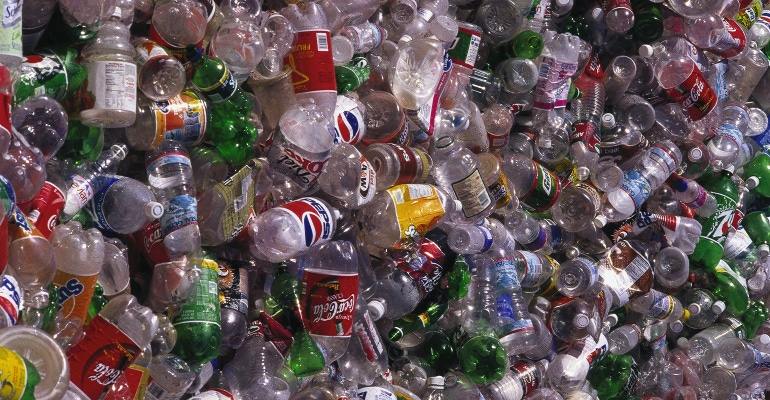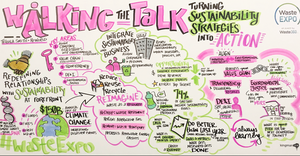Commentary: Committed to End Plastic Waste
This week at the Global Plastics Pollution Treaty Meetings in Ottawa, Canada, participants will have an opportunity to come together and move the needle towards solutions to address plastic pollution. With only two meetings left, these negotiations are at a critical point, which is why our industry has continued to come to the table supporting the effort to achieve a collaborative, robust international agreement that will put us on the path to ending plastic pollution worldwide.

This week at the Global Plastics Pollution Treaty Meetings in Ottawa, Canada, participants will have an opportunity to come together and move the needle towards solutions to address plastic pollution. With only two meetings left, these negotiations are at a critical point, which is why our industry has continued to come to the table supporting the effort to achieve a collaborative, robust international agreement that will put us on the path to ending plastic pollution worldwide.
The way we see it, this meeting is where actual progress can be made. These negotiations will be a missed opportunity if we spend the week talking about how to stop the production of plastic, which, unfortunately, has been a focal point at past meetings.
We need plastic— plain and simple. It is an essential part of society because of all the benefits it provides. Do we need to keep it out of the environment? Absolutely. Keeping plastic out of the environment was the intent of the original process and should remain the focus. But committing to ending plastic waste while acknowledging the essential nature of plastic goes hand in hand—we can’t do one without the other.
At this juncture, the biggest obstacle to progress is the unwillingness to compromise. Our industry is investing billions in the acceleration of circularity to combat plastic pollution, consistency in product designs and performance, and improvements in all workable forms of recycling. We actively seek compromise through these negotiations because we want to see ambitious and attainable environmental goals and are willing to sit at the table with partners from all sides to get it done.
I understand there are emotions involved in environmental issues, which is reasonable considering the pain we feel when seeing a waterway or beach that contains plastic products improperly discarded or mismanaged. But deviating from fact-based policymaking will incur significant, negative unintended environmental and economic consequences. A recent independent report published in the Environmental Science and Technology Journal found that plastics have a lower total greenhouse gas contribution than alternative materials in 14 out of 16 applications assessed. And let’s not forget the ways we use plastic to prevent food waste, including by preserving food and reducing damage during storage and transportation. If food waste were its own country, it would be the third largest emitter of greenhouse gases.
This past week, two very different letters were sent from Capitol Hill to the Administration about this international negotiating process. The first was from Senator Dan Sullivan (AK) who stressed the importance of an agreement that can gain bipartisan support in Washington - after all, many international agreements, especially treaties, require 2/3 support in the U.S. Senate. The second, led by Senators Sheldon Whitehouse (NY) and Jeff Merkley (OR), seemed to urge the exclusion of our industry from the talks and continued to beat the drum of “stop the production of plastic.”
I’d like to stress to Senators Whitehouse and Merkley that it is our industry coming to the table with solutions. Our members are the innovators who are forging technological advances in circularity and always happy to sit down with you and discuss why “stop producing it” is not good public policy - and would even be harmful to your constituents.
Industry can and wants to be a part of the solution, and our role is not only to encourage collaboration but help avert an uninformed approach that assumes everyone involved has the same circumstances. When you consider that three billion people across the globe lack access to proper waste management, its glaringly apparent that every country involved does not have the ability or means to follow an identical prescriptive plan, reminding us to collectively avoid a one-size-fits-all-approach.
We know we don’t recycle enough plastic—and the plastics industry is committed to recycling more, but we need partners who commit to recycling as a vital link in the global sustainability chain. Globally, too much plastic ends up in the environment, especially in our oceans, rivers, and streams. If we focused on making products more recyclable, using more recycled content in products, and modernizing our waste management infrastructure to economically recycle more plastic, wouldn’t that help lead to solving the problem of plastic waste once and for all?
Let us not be detracted from progress by the loudest voices; we must remain committed to the shared goal of ending plastic pollution together, so that when discussions wrap up in Ottawa, we’re on a path to success later this year in South Korea. The Plastics Industry Association, our members and our industry colleagues will be in Ottawa, ready to roll up our sleeves and come to a binding instrument we can all agree on.
Editor's Note: Submit your opinions and commentary to Editor-in-Chief Stefanie Valentic at [email protected].
About the Author(s)
You May Also Like


